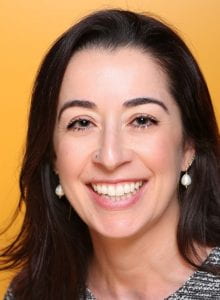 How can cities analyze the costs of providing supportive housing for older adults and evaluate proposals from developers seeking municipal support? The not-so-surprising answer: It’s complicated.
How can cities analyze the costs of providing supportive housing for older adults and evaluate proposals from developers seeking municipal support? The not-so-surprising answer: It’s complicated.
Ask Setarreh Massihzadegan, who began her second year in UMass Boston’s Gerontology PhD program this month. She spent the past summer working through exactly that challenge.
While completing her first year as a PhD student, Massihzadegan applied for the Rappaport Institute for Greater Boston’s Public Policy Summer Fellowship. The program led her to a position at the Neighborhood Housing Development Division within the City of Boston’s Department of Neighborhood Development (DND).
The job: A deep dive into the operating expense details of affordable housing plus services for older adults in Boston. Massihzadegan researched those operating costs, then created a descriptive analysis of her findings to support DND’s process of evaluating developer requests for support and to inform future underwriting policies at the department.
She also provided recommendations that led to changes to the city’s annual Request for Proposals covering housing development assistance this year.
“I learned a tremendous amount about what it’s like to work for a city,” Massihzadegan said. “It gave me a lot to think about in terms of my gerontology trajectory. I definitely want to be doing research that relates to some of the issues I saw from the standpoints of a city, developers and non-profit housing providers.”
The summer fellowship was not her first experience with housing for older adults. Massihzadegan, who holds a master’s degree in journalism from Northwestern University, spent seven years with Erikson Senior Living reporting and writing about residents of the company’s two Massachusetts communities.
That work sparked an enduring interest in housing for older adults, said Massihzadegan, who later became the director of digital marketing at Massachusetts General Hospital before enrolling in the UMass Boston gerontology program.
But the summer fellowship gave her an opportunity to analyze housing plans with a very different set of economics.
Boston supports some affordable housing developments through the city’s Neighborhood Housing Trust, which redirects money collected from linkage fees paid by developers of large commercial projects.
Though affordable housing developers are required to submit a plan for resident services, there is usually just one line item in the proposed budget for the cost of those services. Massihzadegan analyzed that initial pro forma budget data from previous submissions, collected and reviewed recent information from housing development organizations, and interviewed leaders of those organizations to learn more about their actual experience when it came to expenses.
City development officers also needed help to better understand the way housing plus services for older adults actually works. She created guidance that helped explain the wide range of service levels among different development plans and the nuances of how different service providers might interact.
“The housing space is incredibly complicated,” Massihzadegan said. “I have great respect for the effort that goes into cobbling together scarce resources to fund development, to the development process itself, and the challenge of providing adequate, ongoing services for residents. I’m grateful to have made a small contribution to DND’s important work serving the residents of Boston.”
During her summer fellowship, Massihzadegan was also given a second assignment to speak with officials from cities across the country and collect information about new ways they are helping to finance affordable housing development and preservation. She said it was inspiring to hear how often people in other high-cost cities looked to Boston as an innovator in affordable housing development.
Massihzadegan said her summer fellowship and work as a research assistant at UMass Boston’s Center for Social and Demographic Research on Aging have made policy issues a subject of greater interest in her career aspirations.
“The experiences I’ve had in the last year have definitely given me a broader perspective,” she said. “If I’m not helping create policy in the future, I would like to be studying how it impacts the population and what interventions might be beneficial when policy falls short or isn’t the solution.”

September 19, 2021 at 1:24 pm
This is really great work, Congratulations and best of luck in your future ambitions. Thannk you for sharing this.